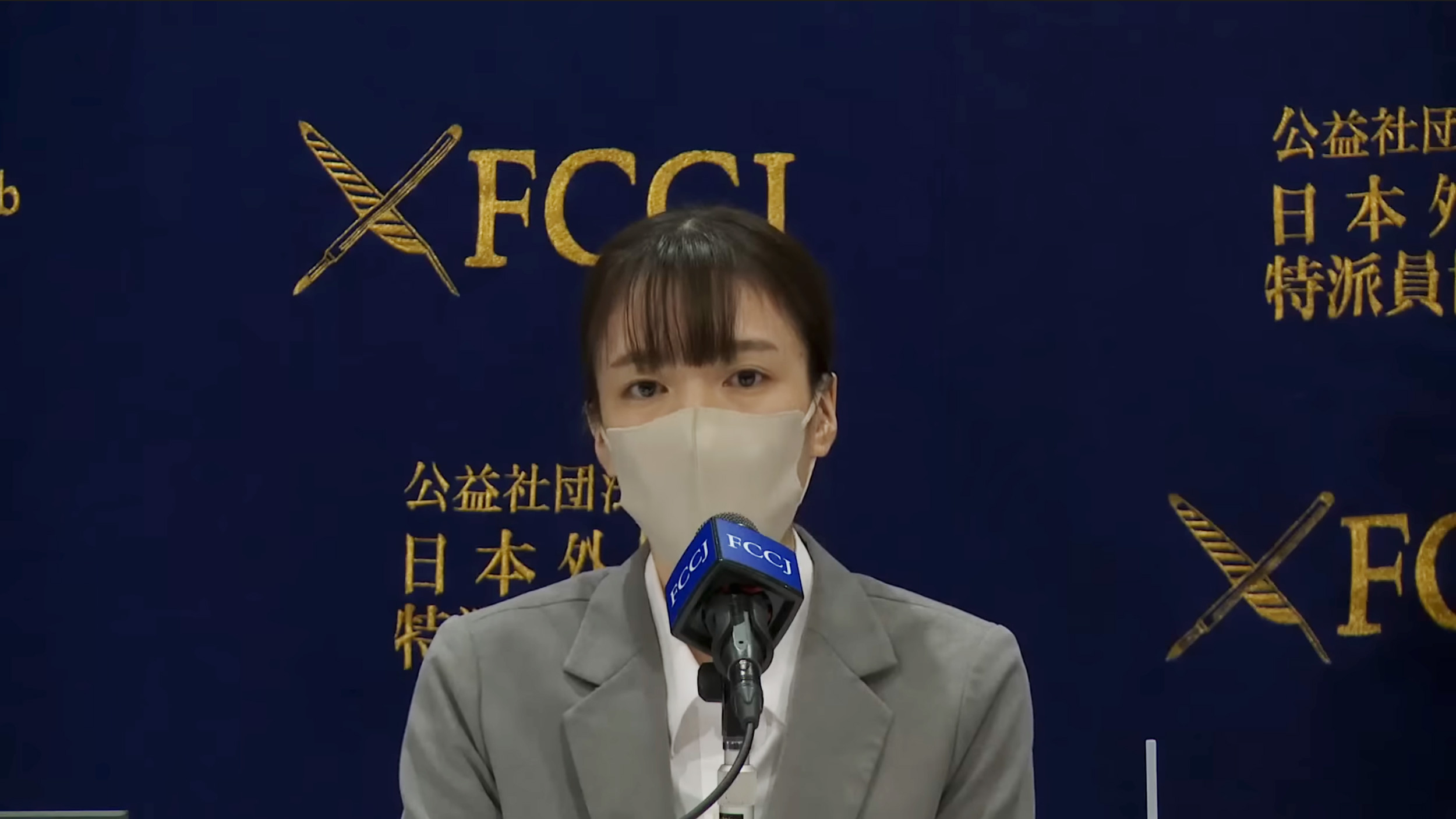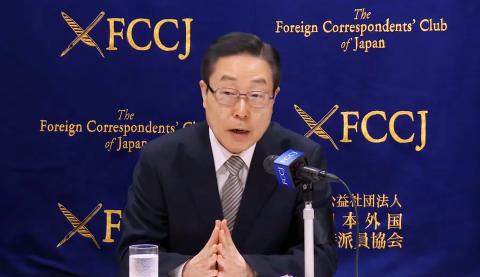Issue:
November 2022
Sayuri Ogawa confronts the Unification church – and her parents – during a day of drama at the FCCJ

Since the assassination of former Prime Minister Shinzo Abe on July 8th, Japan has continued to uncover the murky relations between the ruling Liberal Democratic Party (LDP) and the Family Federation for Peace World and Unification, better known as the Unification church.
The scandal has prompted Japanese journalists to investigate the organisation and the influence it has had on the country’s postwar conservative politics.
The Moonies – as the church’s followers are often referred to – are active in many countries, but Japan has the largest number of devotees: 600,000, according to Susumu Sato, spokesperson for the Japanese branch of the church.
The FCCJ has hosted several press conferences on the church and the LDP, including, in August, an appearance by lawyers Hiroshi Yamaguchi, Masaki Kito and Yasuo Kawai, who have spent decades representing the victims of “spiritual sales” – dubious money-making ventures pursued by organizations such as the Unification church.

And on July 29, the president of the church’s Japan branch, Tomohiro Tanaka, put up a stout defence of the body, leaving little time for questions from the FCCJ audience.
But it was Sayuri Ogawa who taught us most about the church and its methods.
The 26-year-old is a so-called second-generation follower of the Unification church, the daughter of parents who were both members when she was born. Her mother got involved in the church at the age of 20 and later married a man at one of its infamous mass weddings. Ogawa, who goes by a pseudonym, was raised as a “child of god”.
Ogawa, who left the church six years ago, is now happily married and has a young child. She had expected to lead a relatively normal life until Abe's assassination and its dramatic political fallout prompted her to go public with her experiences.
I first met her during a hearing with opposition Diet members in July. I was impressed by her detailed knowledge of the church and her willingness to discuss her parents and the toll their membership of the organization had taken on their family.
I later saw her make several TV appearances, and had no hesitation in accepting an offer to emcee her press conference at the FCCJ.
“My parents were very involved in the sect. My father was in charge of the local church and my mother was also involved in political support activities, especially during elections."
“Since my childhood, no matter what my convictions, I was forced to obey the rules of the church and if I did not respect its instructions, they told me I would go to hell," she said. "I grew up in poverty. At school, I was mistreated because I looked poor. My parents insulted and abused my grandmother, who required nursing care. I also experienced sexual harassment by a church official. The contradictions I witnessed led me to be hospitalized for mental health reasons.”
Ogawa also provided comments from other people who had suffered because their relatives were involved in the church. She described how the church functions in Japan, and how it works to ensure that huge amounts of money are sent to its headquarters in South Korea every month.
And then something incredible happened. About 50 minutes into her press conference, I was told that two faxes had arrived at the club. One, in Japanese, had been sent by a lawyer for the church; the other, in English, was from her parents. Both contained more or less the same message. Ogawa, they said, was suffering from “serious mental health disorders, including dissociative identity disorder” that had worsened since Abe’s death. This, they continued, had prompted her to make inaccurate statements to the media. The messages warned that Ogawa was at risk of committing crimes such as defamation - hence their determination to silence her. They demanded an immediate end to the FCCJ press conference.
I was shocked by their words. I could not imagine why any parent would want to talk about their own daughter in this way. I never even considered bowing to their demands and halting the press conference. (I learned later that the faxes had been sent before the FCCJ event had started, but that they had not been noticed until later.)
As a journalist, I knew the press conference had to continue. But ultimately, that was not my decision – this was not only a question of freedom of the press and freedom of expression, but a serious personal matter on which only Ogawa could decide. She had been criticized and threatened not only by the church, but also by her own parents. Seated nearby, her very supportive husband offered to explain to the audience the contents of the faxes. I thought, though, that we also needed her agreement before he did so. After a short discussion, she agreed.
After Ogawa told me she would like to continue, I asked another question related to her experiences. By then in tears, she said: “If you believe that I am telling the truth, please dissolve the Unification church. That is all.”
I generally try to remain neutral during press conferences, but this time I applauded Ogawa and her brave words. I was also impressed by her commitment - she had not only recounted her own experiences but had also gathered data and testimonials from other people affected by the Unification church.
I have also spoken to several other second-generation followers, who told me how difficult it was to lead a normal life and have a true identity after years of involvement with the church through parents who appeared to have been brainwashed. Are all those people who have spoken out lying? If so, why? I believe they are telling the truth. Ogawa, for example, had absolutely nothing to gain from lying about her experiences.
Her FCCJ press conference has been viewed millions of times on YouTube, mainly by people in Japan. It took her several days after the event to recover from the shock caused by the interventions from the church and her parents. Her plea to the authorities to take action came at great personal risk. And without her testimony, I am not sure that the prime minister, Fumio Kishida, would have ordered an investigation into the Unification church’s activities that could result in it losing its special status in Japan.
The episode demonstrated why the media matter. But their work will not have finished until Kishida orders a thorough investigation into his party’s ties to the church and its affiliates. The wait for proper political accountability continues.
Karyn Nishimura is a correspondent for the French daily newspaper Libération and Radio France.

